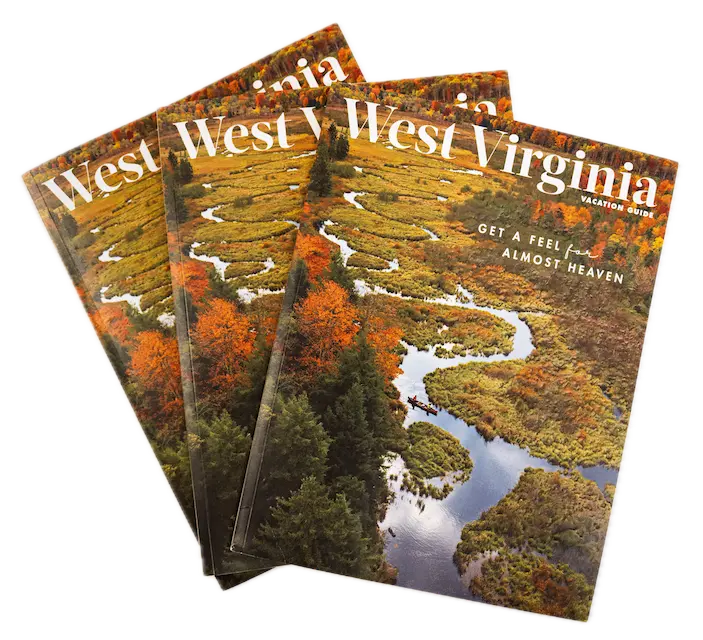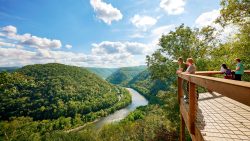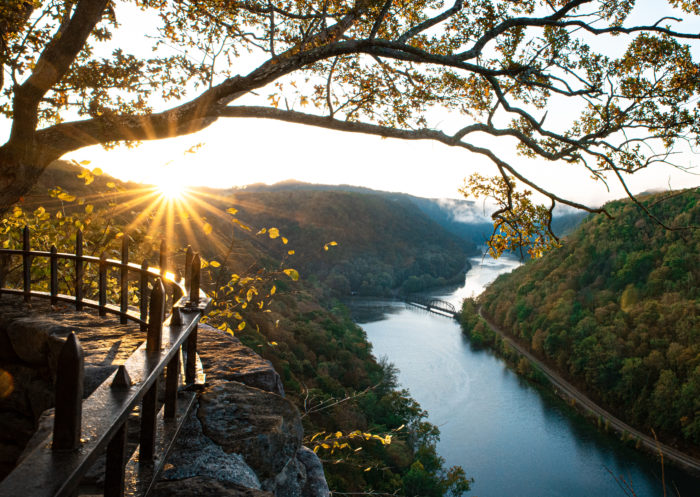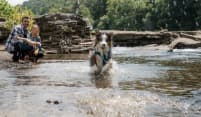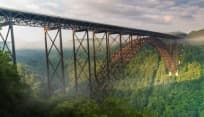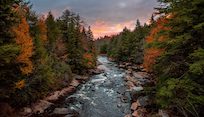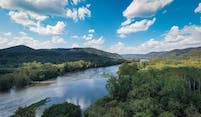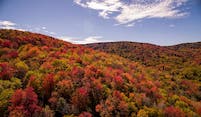Lecture – East Liverpool Potters Southbound to West Virginia
By Susan Weaver, Director, The Museum of Ceramics, East Liverpool, OH As East Liverpool ran out of riverfront land, enterprising potters crossed the Ohio to the “Southside” to expand or start potteries. Harker Pottery, Taylor, Smith & Taylor, Edwin M. Knowles, and Homer Laughlin China Company all moved south into what would become the towns of Chester and Newell.
Intro to Beekeeping–Build a Hive
Learn some basics of beekeeping with John Lewis, education coordinator of the Beekeepers of the Northern Shenandoah, get connected to resources to help you continue your journey as a beekeeper, and build a Langstroth hive. Free community event Saturday night—Sustainable Beekeeping lecture and live music.
Shakespeare’s Weird Weather
From the “weird” meteors of Macbeth to the rain that “raineth every day” in Twelfth Night, this presentation chases the weather of early modern England. By exploring the climate in Shakespeare’s plays, as well as the climate in which his works were composed, this talk by Associate Professor of English at West Virginia University Lowell Duckert invites us to critically re-examine the entangled relationships between climate and culture in our current era of climate change. Most appropriate for adults. $5 for WVBG members, $15 for non-members. Please register by Thursday, October 19. * All activities take place at the West Virginia Botanic Garden, 1061 Tyrone Rd., Morgantown, WV 26508 unless otherwise noted. Walks and presentations will last 1.5-2hrs. Please refrain from bringing your pet to activities. Contact us at 304-322-2093 or info@wvbg.org if you have any questions.
Native American Heritage Month Lecture: “It’s All About Stuff”
Thursday, November 30, 7:00 pm Native American Heritage Month Lecture: “It’s All About Stuff” By Todd “Ghost in the Head” Johnson This program examines how the introduction of trade goods that greatly changed Eastern Woodland cultures after the introduction of European “stuff”. Mr. Johnson draws from the traditions of his Huron heritage when presenting his programs about Eastern Woodland lifeways. He has been a consultant and presenter at historic sites such as Fort Necessity National Battlefield and Meadowcroft Rock Shelter and Historic Village, and has received two letters of recognition from the United States Congress for his portrayal of Huron heritage.
Archaeology Month Lecture: “Ancient Earthworks in the Middle Ohio Valley: Discovering New Sites and Re-examining the Old”
Archaeology Month Lecture: “Ancient Earthworks in the Middle Ohio Valley: Discovering New Sites and Re-examining the Old” By Jarrod Burks, PhD, Director of Archaeological Geophysics, Ohio Valley Archaeology, Inc. The Middle Ohio Valley is rich in ancient moments--circles, squares, and even more exotic shapes; most were built about 1800 years ago. Recent aerial photograph analysis and on-the-ground geophysical surveys have found a surprising number of previously undocumented enclosure sites, as well as many new features at well-known sites.
Lecture: “Beneath the Poppies and Crosses: What Archaeology Reveals about the First World War”
By Hank Lutton, Curator, Grave Creek Mound Archaeological Complex. April 2017 marks the centenary of the United States’ entry into the First World War. This program examines the recent contributions that archaeology has made to provide a better understanding of “The War to End All Wars.” Recent discoveries, including forensic evidence, are transforming our knowledge of how individual soldiers lived and died a century ago.
Lecture – “Hopewell Geometry, Astronomy, and the Marietta Earthworks”
By Wesley Clarke, MA, RPA - The Castle Museum in Marietta, OH. The earthworks at Marietta, Ohio, includes several unusual features, as well as astronomical alignments. While systematic examination of this site has been limited, research during the past 25 years has added substantially to the site record, pointing to future avenues of inquiry and explanation. Mr. Clarke is currently the resident archaeologist and Manager of Collections at The Castle Museum in Marietta, Ohio, where he is directing excavation of an early nineteenth century pottery production site on the museum grounds.
Lecture – “Early Native Americans in West Virginia: The Fort Ancient Culture”
Based on research for her book, Darla I. Spencer, Author and Registered Professional Archaeologist (RPA), of the same title, Ms. Spencer will present an illustrated summary of what is currently known about the Fort Ancient people in West Virginia. A book signing will follow the lecture.
Lecture – “Beneath the Poppies and Crosses: What Archaeology Reveals about the First World War”
By Hank Lutton, Curator, Grave Creek Mound Archaeological Complex. April 2017 marks the centenary of the United States’ entry into the First World War. To observe the anniversary, this program examines the recent contributions that archaeology has made to better understand “the war to end all wars.” By highlighting battlefield excavations, personal artifacts, and the forensic analysis of the fallen from unmarked graves, this lecture will reveal recent discoveries that are transforming our knowledge of how individual soldiers lived and died a century ago.
Lecture – “Survey and Documentation of Hampshire County Cemeteries”
Lecture – “Survey and Documentation of Hampshire County Cemeteries” By Jamie Vosvick, West Virginia Office Manager & Supervising Archaeologist, Archaeological Consultants of the Midwest, Inc., focuses on how community involvement was instrumental in identifying cemeteries that have been forgotten and/or destroyed and are in danger of being lost. Find out how to save and protect these historic resources.
Ladies Hat/Accessories Seminar
Ladies' Hat/Accessories Seminar 11 a.m.- 1 p.m. Fort Randolph reenactors kick off the Spring with the first of the 2017 monthly seminars on colonial living. This one is for the ladies. Materials furnished. Learn about 1700's frontier fashion.
Native American Heritage Month Lecture: The Trail of Tears Experience of Ohio’s Iroquois
Christopher B. Chaney, Unit Chief, Criminal Justice Information Law Unit, FBI Office of the General Counsel Mr. Chaney is a member of the Seneca-Cayuga Nation from Oklahoma who currently resides in West Virginia. In 1832, Seneca and Shawnee tribal members living in Ohio were forcibly removed from their homes and faced deprivation and death on the Trail of Tears. Upon arrival in Indian Territory (now Oklahoma), the tribal members forged a new way of life only to find their dreams shattered by the Civil War. Key to the survival of the Seneca-Cayuga Nation during this tumultuous time was Quashacaugh, also known as Lewis Davis, who is Mr. Chaney’s great- great-grandfather.
Annual Phipps Lecture at Davis & Elkins College
The annual Phipps Lecture at Davis & Elkins College will take place at 7 p.m. Thursday, November 3 in The Joni and Buck Smith Arts Forum in Myles Center for the Arts. The Rev. Dr. Miguel A. De La Torre, professor of social ethics and Latinx studies at Iliff School of Theology in Denver, Colo., an award-winning author and scholar activist, will present the talk titled "Why They Come: Understanding the U.S. Immigration Crises." The lecture is free and open to the public. Time will be allotted for questions from the audience and a reception will take place afterward. In addition to the lecture, De La Torre will show a documentary, “Trails of Hope and Terror,” made by him and his son, Vincent De La Torre. The screening will take place at 11 a.m. November 3 in Eshleman Science Center 400. There is no admission fee and a discussion will follow.
Plantation Archaeology, Industrial Slavery and the Glenwood Project
Robert Maslowski , Retired Archeologist, U.S. Army Corps of Engineers, Huntington District Slave-based agriculture and the salt industry were two of the most important economic pursuits in the early history of West Virginia. The treatment of the enslaved workers differed greatly because slaves in the salt trade were leased instead of owned directly. These differences are revealed in excavations at the Jenkins Plantation on the Ohio River, the Reynolds home and slave cabin at the Marmet Lock Replacement project, and the Glenwood Estate in Charleston, WV.
Rosser’s Raid on Beverly: One Last Frolic for the Confederacy
Grave Creek Mound Archaeological Complex Lecture Series: As ice and snow gripped the Alleghenies in January 1865, Confederate General Tom Rosser launched a raid on the Union depot at Beverly, Randolph County, West Virginia. Surprising the Yankees after a late-night dance, Rosser's raiders plundered the town and carried off twice their number in prisoners. Archaeology aids in revealing this tragicomic tale.
Traditional Storytelling Lecture
A free public lecture, presented by the Augusta Heritage Center of Davis & Elkins College, will take place at 7:30 p.m. Monday, July 25 in Eshleman Science Center room 400 featuring traditional storytelling from Appalachia and Ireland with Adam Booth and Mairtin de Cogain. A jam session and dancing on Halliehurst porch will take place after the lecture.
Frank X. Walker Address
Frank X Walker will deliver the Appalachian Studies Association Conference keynote address on Friday, March 18 in the Shepherd University Frank Center Theater. Walker, a native Kentuckian and graduate of the University of Kentucky, holds an MFA in writing from Spalding University and was named Poet Laureate of Kentucky in 2013—the youngest and first African American to hold the position. Walker co-founded Message Theater and the Affrilachian Poets and was named one of "the most creative teachers in the South" by the Oxford American: The Southern Magazine of Good Writing. His creation of the word “Affrilachia” is included in the Oxford American Dictionary. Walker has lectured, conducted workshops, and read poetry at over 400 national conferences and universities across the globe. Walker’s keynote address, entitled “Escape from Negro Mountain: Writing History, Righting Wrongs,” will utilize stories and literature to shed light on the diversity of Appalachia. Frank X Walker will participate in a number of conference events in addition to the keynote.
The Founder of Storer College
Dr. Dawne Raines Burke, will speak on "John Storer: A Renaissance Man for the Nineteenth-Century Shenandoah Valley" at 7 p.m. on March 2. The talk will be in the auditorium of the Robert C. Byrd Center for Congressional History and Education (formerly Byrd Center for Legislative Studies). Dr. Burke's talk will kick off the Historic Shepherdstown Commission's 2016 Speakers Series. Dr. Burke is the author of "An American Phoenix: A History of Storer College from Slavery to Desegregation, 1865-1955." Her book tells the story of the first college open to African-Americans in West Virginia from its origins during Reconstruction to its closure after the Supreme Court's Brown v. Board Education decision. John Storer, a New England philanthropist, gave $10,000 to establish the school, requiring that it be open to all, regardless of race, sex or religion. Dr. Burke is an Assistant Professor of Education at Shepherd University and a native of Martinsburg. She received her Bachelor's Degree from Shepherd and her Ph.D. from Virginia Tech. The event is free and open to the public. The Byrd Center is located on King Street on the Shepherd University campus next to Scarborough Library. Parking is available on the street or behind the library.
Creators Talk w/ Larry Groce “The Making of Mountain Stage- A Personal View”
Now in its 33rd year, Mountain Stage co-founder/producer and host, Larry Groce, will discuss the role of producer as creator. From the origin story to how the internationally distributed radio show is put together – how decisions are made to how it has survived - will be covered in Larry’s personal reflection.
